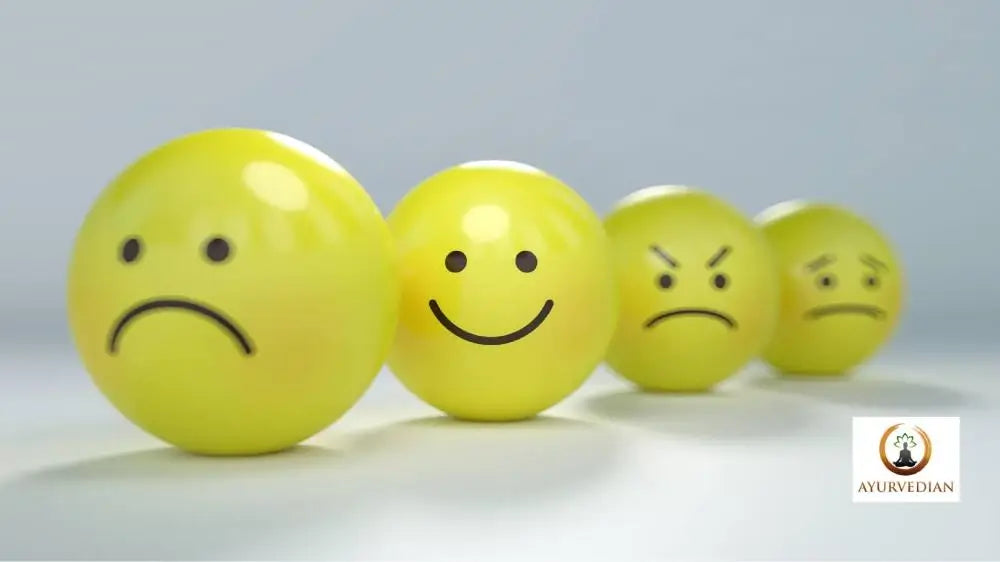
Identify Your Emotions Proactively & Direct Them Towards Positivity
“We suffer not from the events of our lives, but from our judgements of them.” – Epictetus
We think that the sufferings we endure in our lives, the unfavorable outcomes we brace, are the cause of our negative emotions. It seems only logical to think so. Events predicate consequence after all.
But often, this is not the case. Often, it is our negative emotions that cause negative outcomes, and not the other way around.
Which begs the question…

1. What Comes First – Negative Outcome, or Negative Emotion?
The short answer? Negative emotion.
If we dislike somebody (negative emotion), we will not treat them well (negative outcome). If we feel afraid before a presentation (negative emotion), we don’t do well on stage (negative outcome). If we are in an angry state of mind (negative emotion), we are bitter towards everyone else (negative outcome).
All these negative emotions that we encounter every day seem to us to have an uncontrollable quality to them. It’s like an unchained beast threatening to lash out at the first provocation.
But the truth is that these negative emotions are so readily accessible internally and so easily acted out externally – because we haven’t learned how to manage our minds.
In school, we are taught the arts and the sciences. We are taught the laws of the world, what its history has been, what its future will be. But we are not taught how to navigate this harsh world without losing our inner self, our inner peace. We never learn how to take control of our own emotions. We never know how to be proactive about them and not reactive.
No management, or worse, bad management of the mind is what causes our negative emotions. To prevent any more harm to ourselves and to the people around us, we must learn to observe and identify these negative emotions right at the source. If we know how to stop the stream at its origin, we can prevent the flood of negative outcomes that follow.

2. Awareness of Emotions – Identification & Correction
a) Developing a simple habit
Ever since we wake up first thing in the morning, we dive deep into our devices and start subjecting ourselves to a range of emotions. Maybe it’s joy from a meme that made you laugh or an endearing social media post from a loved one. Maybe it’s sadness from a depressing story of animal abuse or loss of human lives. Maybe it’s fear and anger from an emotionally rousing text from your significant other. This relentless onslaught of emotions continues till we go to sleep, only for the cycle to begin all over again the next day.
The key to not being a slave to our emotions all the time and to start gaining some semblance of control is to form a habit. The habit of simply asking yourself the magic question “What am I feeling right now?”
Asking this question helps us gain greater awareness of our emotions. We stop being a participant and start becoming an observer. We learn to detach ourselves and give ourselves time to react instead of behaving impulsively.
b) Every negative emotion has an equal and opposite positive emotion
As we start being aware of our negative emotions, we can choose to transform them. Often, the obstacles in our lives are not the unconquerable hurdles we perceive them to be. You can get locked in the spiral of your pessimism, but rest assured, you can always find your way out of the gloom and get back to viewing life positively.
One constructive way to achieve is to realise that every negative emotion has a corresponding brighter side in the spectrum – the positive end of the same emotion. Anger has compassion, joy has sadness, fear has courage, boredom has curiosity.
When your brain signals a negative emotion, it is not necessarily a call to action. It is more of an indication that your mind is not in balance anymore. It is a sign for you to give your awareness to this disharmonising feeling, and to restore order into your mind.
3. The Answer
If asking the question “What is the emotion I am feeling right now?” gets you a negative emotion, then congratulations! Because you just identified a source of future misery. Set out to mindfully transform that emotion into its equivalent positive emotion, and you’ll find your state of mind and quality of life start to change for the better permanently.
As they say, practice makes perfect. Doing it once will not reap you long term results. But with calm, slow and steady practice, being in control of your emotions will become second nature. You’ll increasingly become more proactive and in-charge of your feelings & actions than reactive and impulsive.
Meditation Will Change Your Life
The path to emotional fulfillment becomes a straight road when you begin developing the above process. And the method that gives you the smoothest wheels to reach your destination is the healing practice of meditation.
People who practise mindfulness through meditative techniques find the process of mastering their mind most effectively. This is because they develop the habit of aligning their mindset to a state of bliss and happiness naturally. They have complete control over the reins of their internal world, and thus remain unaffected by events in the external world.
After all, the path to happiness is paved not from outside of us, but from within.
